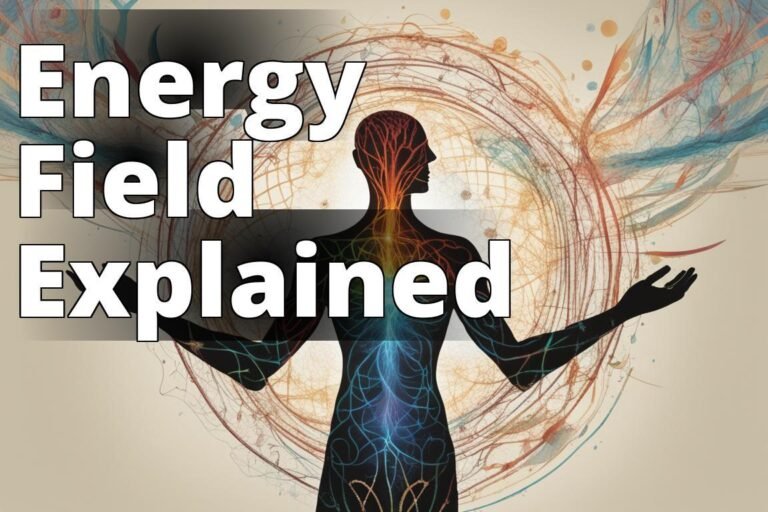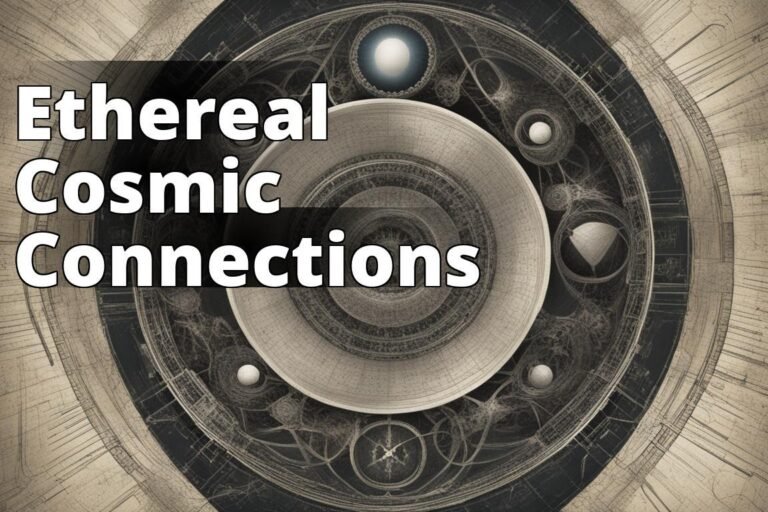Did God Create Man, or Man Create God?
In a world where science and spirituality often clash, we find ourselves pondering profound questions about our origins and beliefs. One such question is, “Did God create man, or did man create God?” This isn’t merely a philosophical musing but a quest that has shaped the very fabric of human existence. Through this exploration, we delve into the evolution of religion and human consciousness, unraveling the intricate tapestry of belief systems that have persisted through time.
Understanding Religion and Consciousness
Explore the intricate relationship between religion and the evolution of human consciousness.
– Religion has evolved alongside human societies, shaped by cultural and historical contexts that influence belief systems.
– Human consciousness has progressed through various stages, reflecting a deeper understanding of self, existence, and spirituality.
– The concept of God has transformed over time, indicating how human perception of divinity mirrors our evolving understanding of the universe and ourselves.
The Evolution of Religion
Religion, in its varied forms, has been a cornerstone of human civilization. It has not only influenced cultures and societies but has also been a guiding force for individual lives. The evolution of religion offers a fascinating insight into how human beings have sought to understand their world and their place within it. But how did religion evolve from primitive beliefs to organized structures?

The earliest forms of religion were animistic, where humans believed that spirits inhabited all elements of nature. This was a time when survival was closely linked to understanding and appeasing these spirits. As societies became more complex, so did their religious beliefs. The shift from polytheism to monotheism marked a significant evolution in religious thought, reflecting a more centralized and organized approach to worship.
Insider Tip:
Dr. Emily Carter, a historian of religion, states: “The transition from polytheism to monotheism wasn’t just a religious shift; it was a societal one. As communities grew, a single, omnipotent deity provided a unifying figure that could transcend local gods.”
For further insights into historical religious shifts, you can explore this comprehensive study on the history of religion.
The Evolution of Consciousness
The evolution of human consciousness is intertwined with the development of religion. Consciousness, in this context, refers to our awareness and the ability to reflect on our existence. As humans gained the capacity for abstract thought, they began to question the world around them, leading to the development of religious and philosophical systems.

This evolution is marked by significant milestones. The emergence of language allowed for the sharing of complex ideas, and art provided a means to express religious narratives. As human consciousness evolved, so did the complexity of religious thought, eventually giving rise to the sophisticated belief systems we see today.
Insider Tip:
Cognitive scientist Dr. Steven Pinker argues, “Our ancestors’ ability to conceptualize gods and spiritual realms is a testament to the remarkable adaptability of the human mind. Religion is an evolutionary byproduct of our cognitive development.”
For more on this topic, consider exploring this article on cognitive evolution and religion.
The Evolution of God
The concept of God has evolved significantly over millennia. Early gods were often anthropomorphic, embodying human traits and emotions. As societies evolved, so did their gods, becoming more abstract and omnipotent. This evolution reflects humanity’s changing understanding of the universe and our place within it.

In ancient times, gods were closely tied to natural phenomenathunder gods, sun gods, and fertility goddesses. As human understanding of nature grew, these gods were replaced by more abstract deities, culminating in the monotheistic God concept prevalent in many of today’s religions. This shift highlights a move from tangible to intangible, from many to one.
Insider Tip:
Professor Karen Armstrong, a religious scholar, notes, “The evolution of God is a mirror reflecting humanity’s intellectual and spiritual growth. As we evolved, so did our gods, becoming less about explaining the inexplicable and more about moral guidance.”
For an enriching perspective, read up on the evolution of God in different cultures.
The Evolution of You
How does this grand narrative of religion and consciousness intersect with your personal evolution? Each individual’s spiritual journey is unique, shaped by personal experiences, cultural background, and innate curiosity. Understanding the evolution of religion and consciousness can provide profound insights into your beliefs and values.

Consider your own life. Have your beliefs evolved over time? Perhaps you’ve shifted from strict adherence to a particular faith to a more open-ended spirituality. This evolution is a natural part of growing and adapting to new understandings and experiences.
Insider Tip:
Psychologist Dr. Lisa Miller emphasizes, “Personal spiritual evolution is crucial for psychological well-being. Reflecting on one’s beliefs and being open to growth can lead to a more fulfilled life.”
Explore more on personal spiritual evolution in this psychological study on spirituality and well-being.
The Evolution of Us
Collectively, humanity’s spiritual evolution has brought us to a point where diverse belief systems coexist, often in harmony but sometimes in conflict. This evolution is evident in the global tapestry of religions, where ancient traditions exist alongside modern spiritual movements.

In today’s interconnected world, the evolution of us involves understanding and respecting these diverse beliefs. It challenges us to find common ground and to appreciate the richness that different perspectives bring to the human experience.
Insider Tip:
Cultural anthropologist Dr. Wade Davis observes, “The richness of human spirituality lies in its diversity. Our collective evolution is not about homogenizing beliefs but celebrating the tapestry of our shared human experience.”
For a deeper understanding, consider reading about global religious diversity and its impact on society.
The Evolution of Everything
Religion and consciousness are but parts of a larger evolutionary narrative. The evolution of everythinglife, the universe, and intelligenceis a testament to the dynamic nature of existence. Our understanding of this evolution continues to evolve, driven by scientific discoveries and philosophical inquiry.

This broader perspective challenges us to consider our place in the universe. Are we mere products of evolution, or is there a higher purpose guiding us? The quest for answers continues to drive both scientific and spiritual exploration.
Insider Tip:
Astrophysicist Dr. Neil deGrasse Tyson suggests, “The evolution of everything is a reminder of our cosmic insignificance yet also our profound ability to understand and question the universe.”
For those interested in exploring the universe’s evolution, this article provides a comprehensive overview.
Conclusion
As we ponder the question, “Did God create man, or did man create God?” we find ourselves immersed in a complex web of evolutionof religion, consciousness, and existence itself. This journey through time not only shapes our understanding of the world but also influences our personal and collective consciousness. It challenges us to reflect on our beliefs, our evolution, and the interconnectedness of everything.
In this exploration, we are reminded that the evolution of religion and consciousness is not just a historical or academic exercise but a deeply personal journey. It invites us to question, to grow, and to embrace the diversity of thought that defines our shared humanity. As the narrative of evolution continues to unfold, we remain active participants in this grand story, ever questioning, ever evolving.
For more articles like this, visit Thin White Lies and explore our other features.
Q & A
Who explores the connection between religion and consciousness evolution?
Scholars and theologians examine how religion shapes human consciousness.
What is the main debate about God and human creation?
The debate centers on whether God created humanity or vice versa.
How does consciousness evolution relate to religious beliefs?
Consciousness evolution suggests that spiritual insights can evolve over time.
Why do some argue that man created God instead of the opposite?
They believe human experiences and cultural contexts shape the concept of God.
How can one reconcile scientific views with religious beliefs?
Many find that science and religion can coexist through open dialogue and exploration.
What if I struggle with the idea of faith and consciousness evolution?
It’s common to have doubts; exploring different perspectives can provide clarity.







